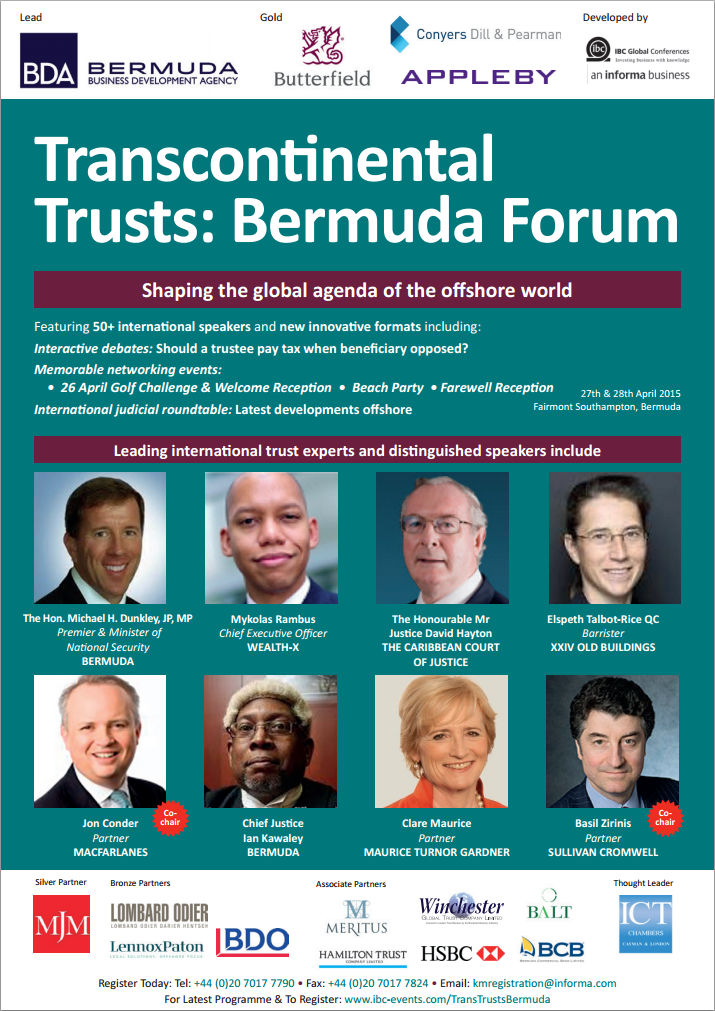28
Aug
2015
Enhancements to Legislation with an Eye on Private Equity








 In an anonymised ruling of December 2014, In the Matter of the Estate of PQR, Deceased [2014] Bda No. 205, Chief Justice Kawaley analysed the legality of a forfeiture clause within a Bermuda will. The point of construction was one that had not been determined as a matter of Bermuda law and turned on the divergence between commonwealth case law (more hostile to the validity of forfeiture clauses) and English case law (less hostile to the notion of seeking to give reasonable effect to forfeiture clauses).
In an anonymised ruling of December 2014, In the Matter of the Estate of PQR, Deceased [2014] Bda No. 205, Chief Justice Kawaley analysed the legality of a forfeiture clause within a Bermuda will. The point of construction was one that had not been determined as a matter of Bermuda law and turned on the divergence between commonwealth case law (more hostile to the validity of forfeiture clauses) and English case law (less hostile to the notion of seeking to give reasonable effect to forfeiture clauses).

 I had the pleasure of sitting down with Mrs. Gitanjali Gutierrez in my office at MJM last week for a one-on-one interview about her background, role as Bermuda’s first Information Commissioner, and the Public Access to Information (PATI) Act implementation. A fascinating woman, she spoke passionately about her new role and the way PATI is changing the way things are done in Bermuda. Here’s what she had to say...
I had the pleasure of sitting down with Mrs. Gitanjali Gutierrez in my office at MJM last week for a one-on-one interview about her background, role as Bermuda’s first Information Commissioner, and the Public Access to Information (PATI) Act implementation. A fascinating woman, she spoke passionately about her new role and the way PATI is changing the way things are done in Bermuda. Here’s what she had to say...

 As one of the oldest international trust jurisdictions, Bermuda is known as a premier jurisdiction for trusts and other private client structures. Bermuda serves a broad spectrum of international businesses and high net worth clients and this year we are proud to be hosting the Transcontinental Trusts Forum: Shaping the Global Agenda of the Offshore World.
As one of the oldest international trust jurisdictions, Bermuda is known as a premier jurisdiction for trusts and other private client structures. Bermuda serves a broad spectrum of international businesses and high net worth clients and this year we are proud to be hosting the Transcontinental Trusts Forum: Shaping the Global Agenda of the Offshore World.
